February 19th, 2021. Shabbat is almost here
And today we look back to the past again, thanks to the work of Renair Records and their revival of the priceless legacy of another much earlier label: Syrena.
 Hello, how are you? I hope very well. Next week is Purim and I will bring the bulletin up to Thursday and the Sephardic tradition will be our focus. But today we will listen to a Polish cantor recorded in 1927 by Syrena-Electro: Salomon Kupfer.
Hello, how are you? I hope very well. Next week is Purim and I will bring the bulletin up to Thursday and the Sephardic tradition will be our focus. But today we will listen to a Polish cantor recorded in 1927 by Syrena-Electro: Salomon Kupfer. – And, as usual, find the music piece at the bottom – ?
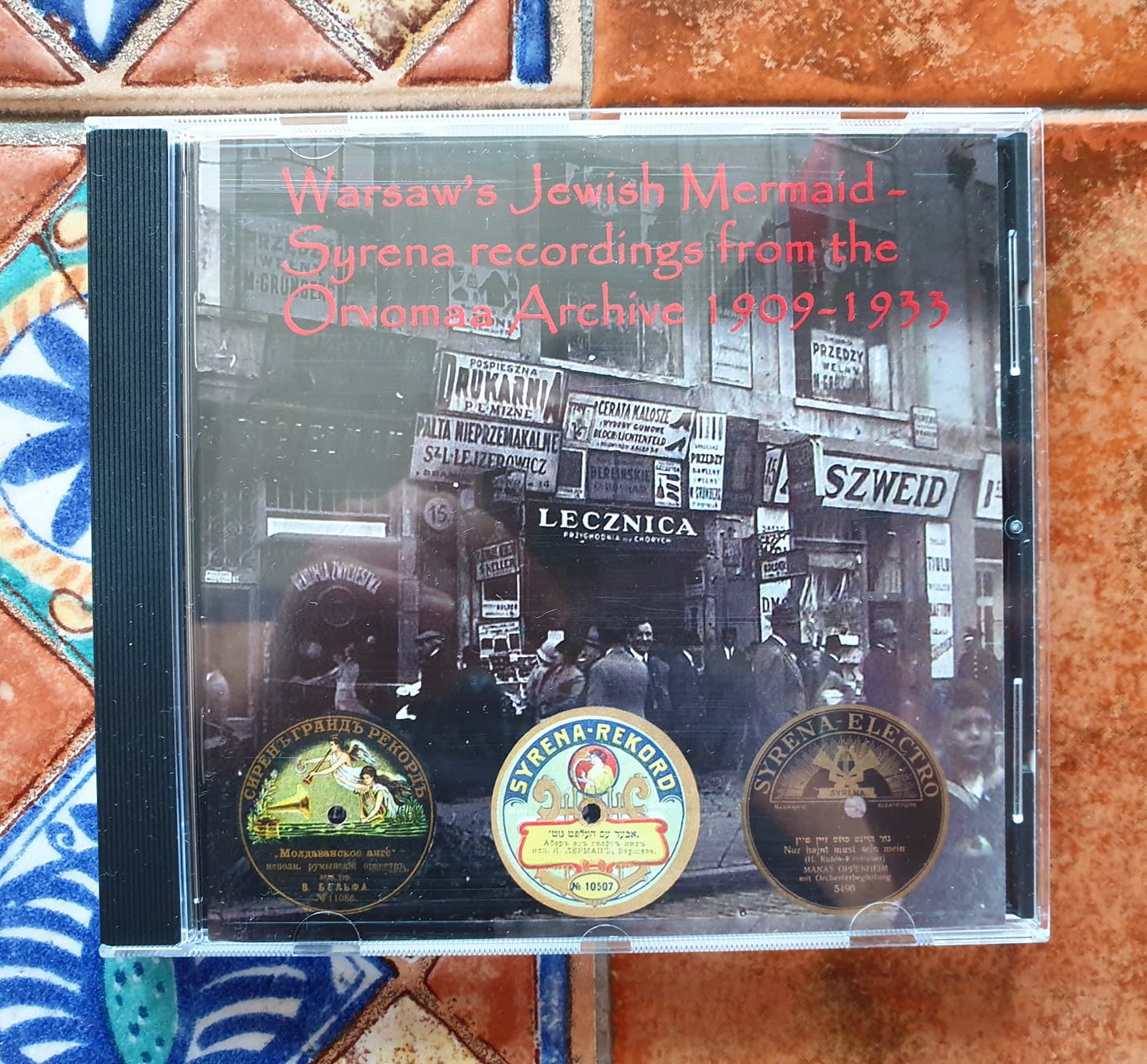 The record label Syrena appeared in a previous edition, this one, about Belf’s Romanian Orchestra before Simchat Torah. And the last week I made an order of several albums from Renair Records, including this beauty ?
The record label Syrena appeared in a previous edition, this one, about Belf’s Romanian Orchestra before Simchat Torah. And the last week I made an order of several albums from Renair Records, including this beauty ?
The distribution of Renair Records is Honest Jon’s, a shop in London, in Portobello street. As I have been doing a radio show for several years (check Mundofonías), I receive dozens of albums, both in CD and in digital, every month. So it is very rare that I buy an album but I paid with joy the price of the three albums I got from Honest Jon’s, as they contain this wonderful recordings as well as a very enlightening booklet to understand the contexts of the music, that is what we love the most here in MBS.
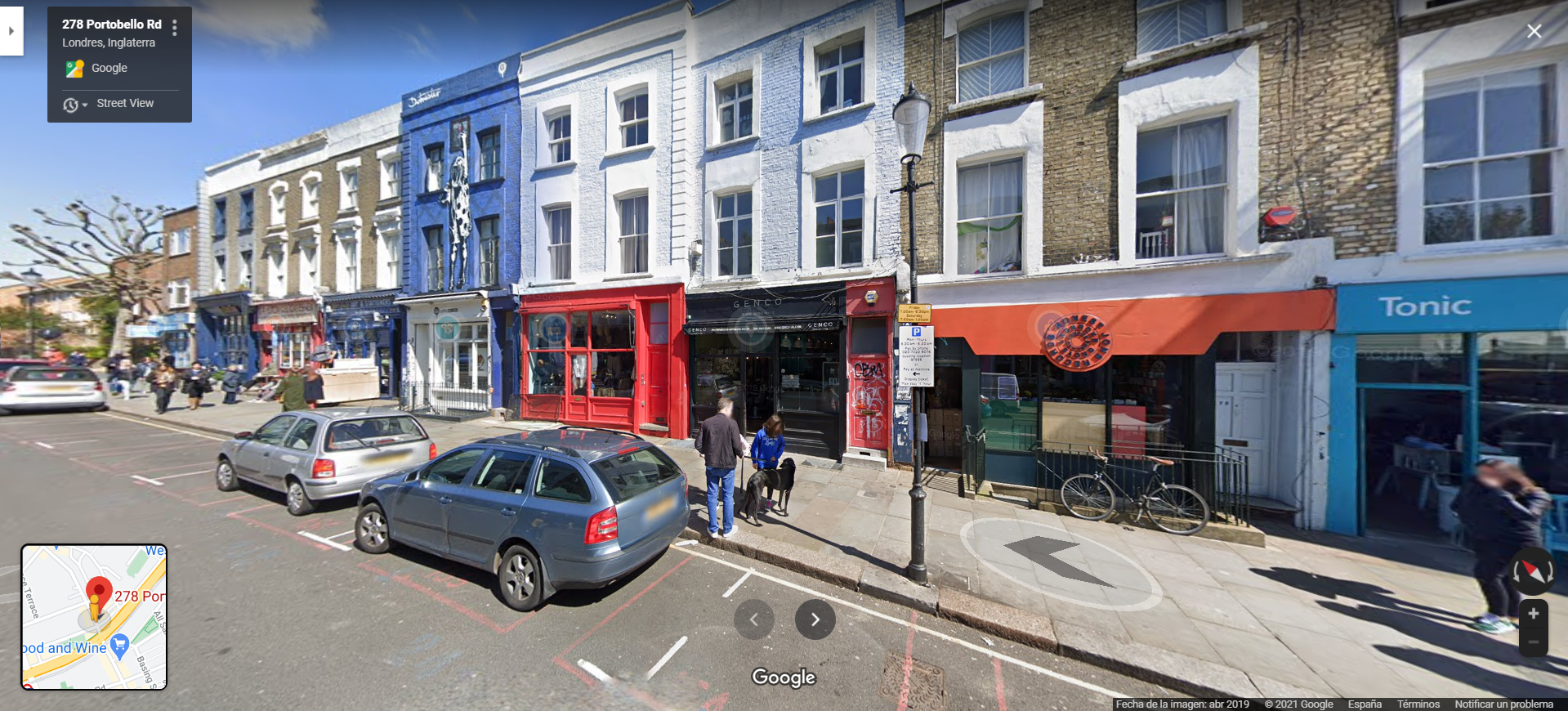
| Share the joy of music and learning with your beloved ones. Share MBS. Thank you in advance. |
| Share this with a friend, right from here |
About Renair Records
Being so interested in Jewish music, especially old recordings, I was surprised it took me so long to learn about the work of this label. Did you already know about it? In any case, I am delighted to give it some visibility from this humble space that is MBS. I hope it reaches more interested people and they buy a lot from them.
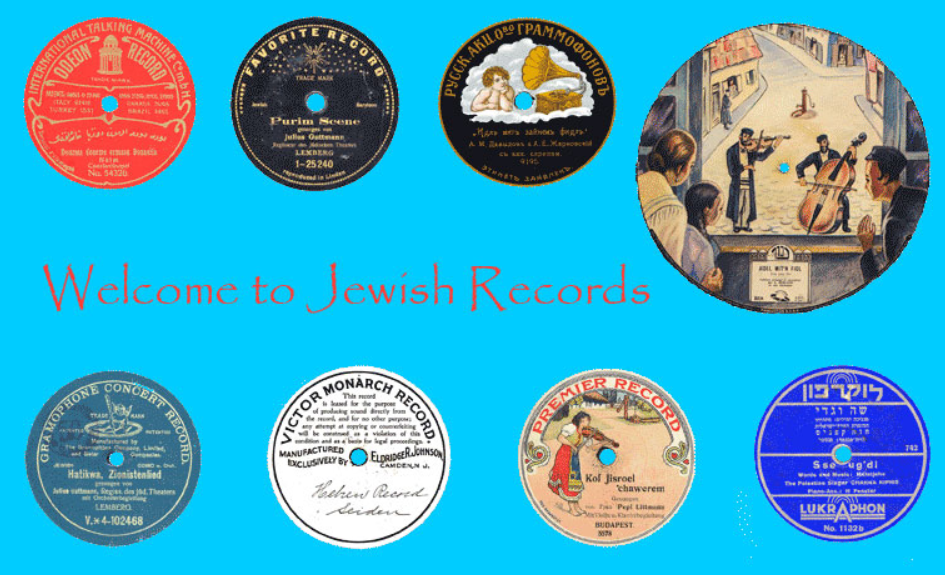
“Warsaw’s Jewish Mermaid – Syrena Recordings From The Orvomaa Archive 1909-1933
What is the Orvomaa Archive?
According to the booklet:
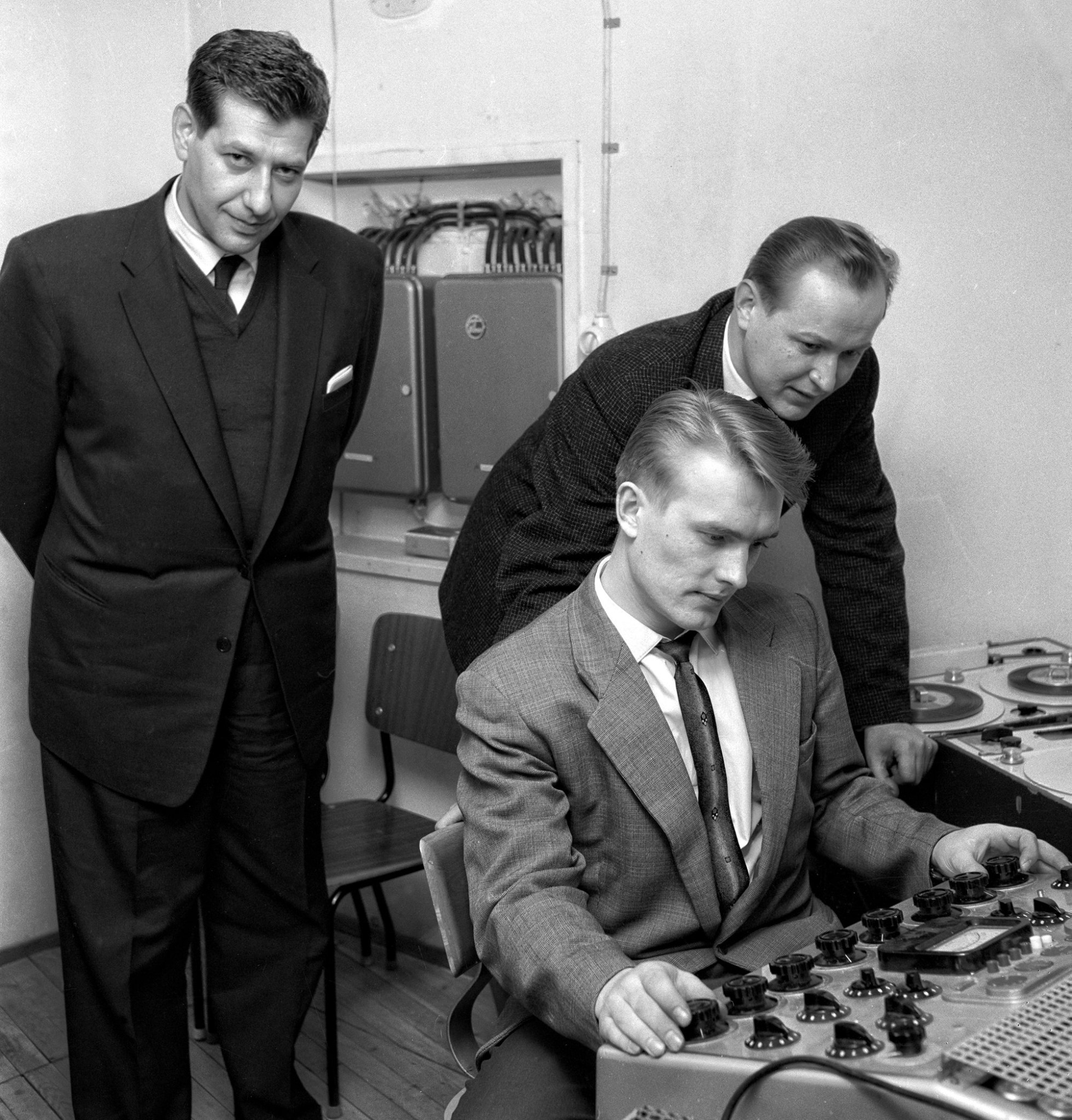 “This collection of recordings is drawn mainly from the archive built up by Harry Orvomaa (1927-1990) who was a record producer and co-owner of the Scandia Music Company, the most successful Finnish record company in the 1960s and 1970s. Today, the Scandia catalog is owned by Warner Music […] After his death, his record collection was donated to Suomen äänitearkisto, the Finnish Institute of Recorded Sound. Today, it is part of Music Archive Finland.”
“This collection of recordings is drawn mainly from the archive built up by Harry Orvomaa (1927-1990) who was a record producer and co-owner of the Scandia Music Company, the most successful Finnish record company in the 1960s and 1970s. Today, the Scandia catalog is owned by Warner Music […] After his death, his record collection was donated to Suomen äänitearkisto, the Finnish Institute of Recorded Sound. Today, it is part of Music Archive Finland.”
Harry Orvomaa? is the man standing on the left (the other men are said to be Jaakko Salo and Aarre Elo). This picture is from the Facebook page of Alvar Kolanen.
The family of Harry came from Łomża (North-East of Poland). According to Laura Katarina Ekholm in “Boundaries of an Urban Minority: The Helsinki Jewish Community from the End of Imperial Russia until the 1970s“:
“Harry Orvomaa’s Scandia Music was one of the biggest companies in the domestic music industry in the 1950s and 1960s. In 1972, Orvomaa sold the company to his main competitor Fazer music.”
These chains of events, thanks to which this kind of musical content has come down to us today, never cease to fascinate me. The archives of Syrena records were destroyed by the Nazis. Thanks to the passion of people like Orvomaa and the ones from Renair, we haven’t lost all this.
What about Syrena?
The History of Syrena is widely explained in the booklet of the CD. I will just make a little summary.
The background
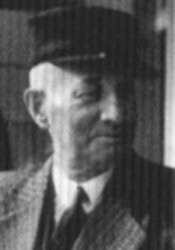 The founder of Syrena Record was Juliusz Feigenbaum, born in 1872 into a Jewish family. They were manufacturers and retailers of musical instruments, with branches in Warsaw and Moscow. In 1890 Juliusz became manager of one of the shops and started to sell Edison phonographs and cylinders and became one of the representatives of Gramophone in Warsaw. He got married in 1904 with Salomea Temple, from a very wealthy Jewish family. She died almost immediately but Juliusz kept the ties with the family very strong and their economic muscle must have j had a relevant role on this story. In the next years, many members of the Tempel family would become part of the company Syrena. But Syrena hadn’t been born yet! The same year, in 1904, Juliusz set his first record label: Ideal.
The founder of Syrena Record was Juliusz Feigenbaum, born in 1872 into a Jewish family. They were manufacturers and retailers of musical instruments, with branches in Warsaw and Moscow. In 1890 Juliusz became manager of one of the shops and started to sell Edison phonographs and cylinders and became one of the representatives of Gramophone in Warsaw. He got married in 1904 with Salomea Temple, from a very wealthy Jewish family. She died almost immediately but Juliusz kept the ties with the family very strong and their economic muscle must have j had a relevant role on this story. In the next years, many members of the Tempel family would become part of the company Syrena. But Syrena hadn’t been born yet! The same year, in 1904, Juliusz set his first record label: Ideal.
This picture of Juliusz is the one in the booklet and I found it also in this page with a list of productions by Syrena (it is in Russian).
The birth and boost of Syrena
Ideal was not a success and in 1908 Juliusz set a new label: Syrena. It started re-releasing works from Ideal and Russian repertoire. Soon the company started to expand the activity. In 1910 they set a branch in Moscow. They sold a lot because of the quality of the recordings. Juliusz himself took care of the process: from the arrival of the artists to Warsaw, weeks before recording (the artists were treated with outstanding hospitality), they were making rehearsals in order to be in good shape for the recording sessions, which Juliusz would supervise personally. The company had recording studios in Warsaw and St. Petersburg and soon they started to launch field mobile sound engineers, so they could sign and record in France, Austria, Hungary and Romania.
During this time, the Russian market was huge and Syrena got much success.
World War I
When the Germans drove the Russians out of Warsaw, 1915, Juliusz and Szymon Tempel (who was recording abroad) hadn’t been able to return to Poland. The properties of the company had been confiscated by the Russians and the headquarter had been converted into a factory. Anyway, they got to convince the Germans to produce records, and Syrena released a series of patriotic recordings. But nothing would be the same never again. The Russian Revolution made that the Russian market for the records by Syrena disappeared and Poland would go through a strong economic crisis and was under the threat of the insurrections in Silesia and the Soviets.
Between wars
Juliusz returned to Warsaw in 1921 and with Fabian Tempel, he got to rebuild the company. They made business providing the soundtrack to the talking films that were being done in Poland. The economic crisis of the 1930s hit the record companies strongly.
World War II
When in 1939 the Germans invaded Poland, the social and cultural elite were in their spotlight. The chairman at the time, Hilary Tempel, was arrested and shot on 25 May 1940. Between 1939 and 1941, the Germans confiscated all the properties of the Polish record companies and the sound archives were destroyed or taken to Germany. Juliusz got to survive the war and died in 1947 in Zurich.
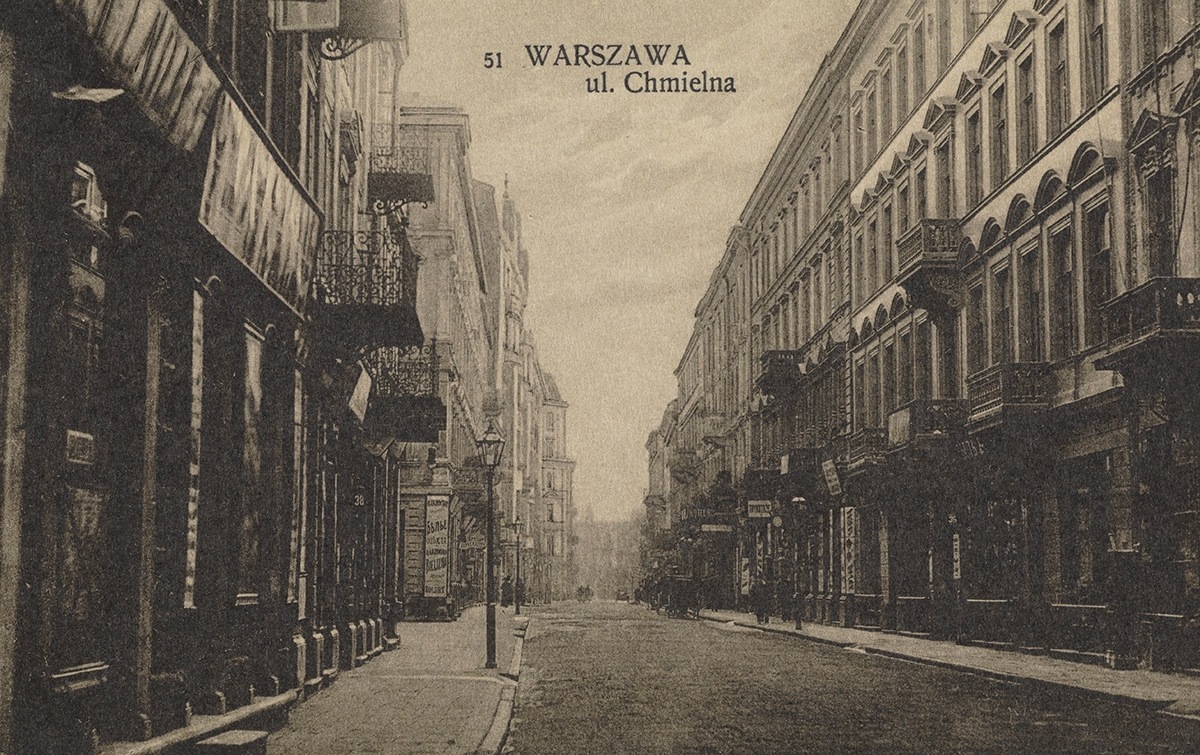
This below is Chmielna Street nowadays. But the first pressing plan of Syrena was in 33 Piękna street in Warsaw, as I mentioned in this previous edition.
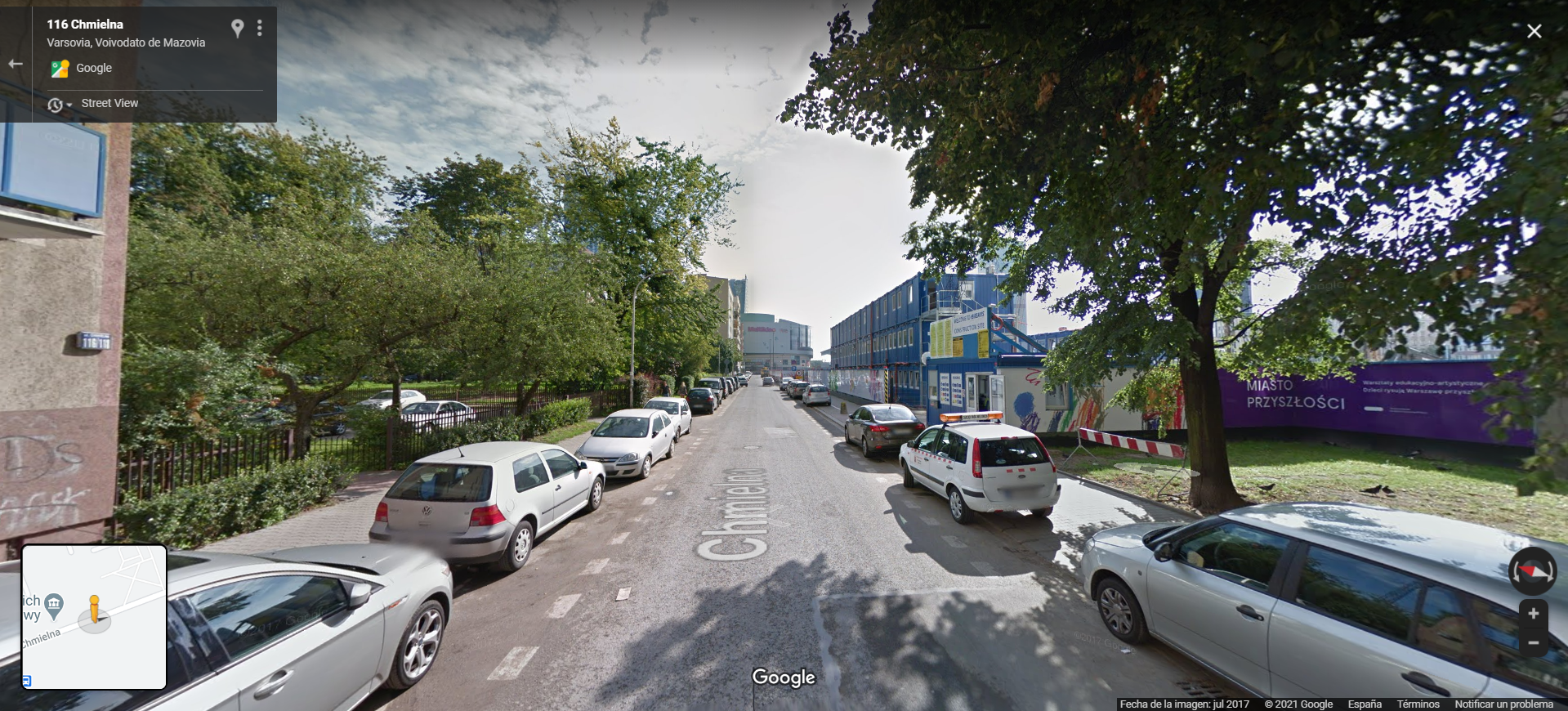
| Share this with a friend, right from here |
And the music piece!
The song I have selected from this album is the one I have found available openly in Youtube. I could have chosen many others as the album is very interesting. So, Rachem Noo means “have mercy on us”. It was recorded in the second half of 1927 in Warsaw. It is a composition by Yossele Rosenblatt (he has his own edition of MBS, here) (or after his composition, according to the booklet). The title of the piece is meaningful. It is a prayer to God asking to relieve us of our troubles. Very appropriate for now… and for any time, really.
About Salomon Kupfer

This cantor was born in Bialowieza (according to the bio from Geoffrey Hisler website), Radom region, in 1881. If you search for the place now, you will find another location, much more in the East.
– Although it is not part of this story, I will explain that the Radom region has been quite isolated, with bad roads, and perhaps because of that it has kept the tradition of village music very strong to this day. I have had the good fortune to meet several old masters thanks to Janusz Prusinowski. For instance, Piotr Gaca. This recording was done a few days before his death, in hs family house in the village of Rdzòw, Radom region. Until today, I haven’t made this recording public. Piotr Gaca has been one of the sources for the musicians from today to learn Jewish tunes from the village from before the WWII –
Back to Kupfer, he was born in a family of cantors. He studied at the cantor’s school in Częstochowa and would become famous abroad too. In 1928 he moved to Leipzig to work at the Ohel Jakob synagogue. When the Nazis took the power, he moved to Manchester and got the position of cantor at the Cheetham Hill Synagogue. He died in Manchester in 1965.
For his bio, I have used the bookled of the CD and this page (wonderful website, by the way) by Geoffrey Hisler. This portrait is from his website. It is the same one that comes in the bookled of the CD and I haven’t found any other.
Click the picture to listen to Rachem Noo by Salomon Kupfer:
Shabbat Shalom.
Araceli Tzigane | Mapamundi Música
And we share with you one hour of music for joy in this playlist.
To know more about our artists, click here.
May you always find the light in your path.
These is our artistic offer for live show:
Gulaza – Janusz Prusinowski Kompania Jewish Memory
